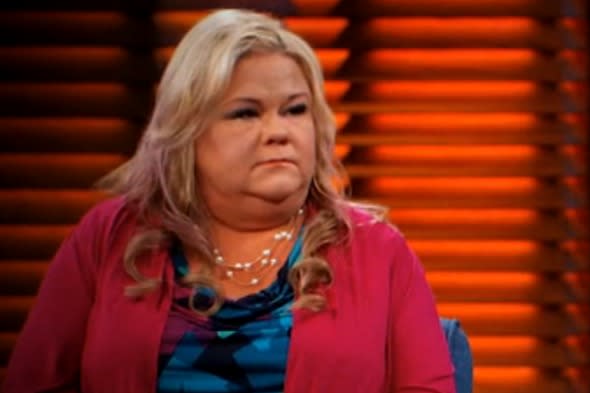Woman sends $1.4 million to online romeo - is she being scammed?
An American woman, identified only as Sarah, has revealed that she sent $1.4 million to a man she started dating online 18 months ago, and has never met. She said she's 95% certain she's not being scammed - but the signs don't look good for her.
Sarah is due to appear on the Dr Phil Show today, and says she met a man called Chris Olsen 18 months ago on an internet dating site. He told her he was originally from Milan, but moved to America 18 years ago, and is currently in Africa for business reasons.
The two speak every night on the phone, and have developed a long-distance relationship. She said his accent has become less Italian since they first started chatting, but that he may just have adapted to where he is living in Africa.
46-year-old Sarah told Dr Phil that she was shocked when he first started talking to her, because he was so good looking, but he soon wooed her with what she calls his 'poetic' turn of phrase. He has told her regularly that he cannot wait to be with her, and has tried to leave the country several times to visit her, but each time something goes wrong.
Over the course of the relationship, she said she had sent over a million dollars to Olsen, as he ran into a few difficulties. These included the need to buy phone cards in order to call her, pay hotel bills, employ lawyers after he was wrongfully arrested, pay for a nanny, and renew his expired visa.
Perhaps most shockingly was when he was imprisoned on false charges of money laundering, so Sarah sold her flat and sent him half a million dollars to get him out of jail. The latest twist is that he told her he was stuck in West Africa and was in trouble with the government.
%VIRTUAL-ArticleSidebar-scams-guide%
Is it a scam?
Sarah was taken on the programme by her cousin, who was worried that she was squandering her inheritance, but she insisted on the programme that she felt her boyfriend was telling the truth. She was, however, shocked when Dr Phil added up the cash she had sent to him, and discovered she had parted with $1.4 million.
The show hits the screens tonight, and brings the pair face-to-face, at which point Sarah will discover whether her faith in her boyfriend is misplaced.
Worryingly this story shows many of the hallmarks of being a scam. Action Fraud outlines the common beginnings of an online romance scam - where you register with an internet dating site and you're contacted by someone very good looking (often based overseas) who shows an interest in you - which sounds similar to Sarah's story.
They typically move off the site fairly quickly (as Chris Olsen did) and you develop a long distance relationship by email, texts and phone calls. They will develop a pet name for you (in this case Mrs Olsen).
Once the scammer is confident that you are romantically attached to them, they will tell you a problem they have run into, and ask you to send money. Action Fraud says they may say they are ill, that they need money for travel costs or visas, or they have had their plane ticket stolen. These examples will make uncomfortable reading for Sarah - who has been told many of these tales. If you send money, the fraudster will keep coming back to you for more.
What should you do?
If you have been a victim of this kind of fraud, Action Fraud says it's essential to break off communications immediately, report them to the site where they first found you, and stop sending money. You should also report it to the police so they can investigate. It can be embarrassing to admit you have been taken in, but only by reporting it do they stand any chance of being caught, to stop more vulnerable singletons becoming victims.
If you are considering online dating, then you need to take steps to protect yourself. You need to trust your instincts: do they seem unusually attractive for someone on a dating site? Do they seem to have been smitten surprisingly quickly? Are they always perfectly lovely to you? In short, are they too good to be true?
Even if they don't ring the early alarm bells, guard your privacy: stay on the dating site rather than agreeing to exchange emails or phone calls. Don't reveal too much about yourself, which will give them ammunition when it comes to finding the best way to scam money out of you.
You also need to ask them basic questions about who they are, what they do, and where they live, and consider whether you have received honest and full answers. Often these scammers are based overseas, so it may be safer to date people in the same country. However, bear in mind that they may lie to you about where they are living - so make sure you ask lots of questions.
Romance scams on AOL Money
Match.com dating con steals £220k
Man duped by online romance scams... three times
Online dating fraudster jailed for stealing from singletons





